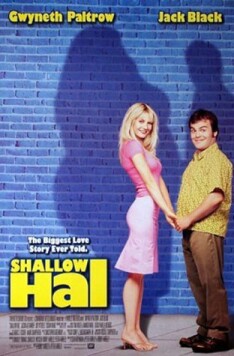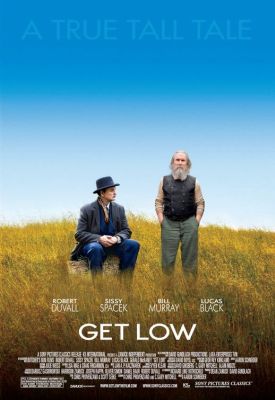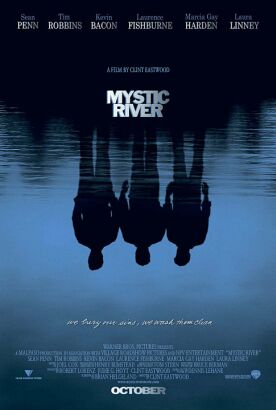Shallow Hal
Admittedly, Hollywood hypocrisy can hardly be said to be a new thing, but
even in the venerable and storied annals of that vice in that place, there can
be few more spectacular examples than that of Shallow Hal, by Shallow
Peter and Shallow Bobby Farrelly. You’ve almost got to admire the chutzpah
with which they set out to moralize to us about the shallowness and immaturity
of judging women on the basis of their appearance in a movie which stars Gwyneth
Paltrow — who occasionally appears, admittedly, in a computer- enhanced
fat-suit. Actually, we don’t see Gwyneth in the fat-suit until three
quarters of the way through the film. Up until that point, we only see Gwyneth
in all her incredible — and incredibly slim — loveliness, though we
are meant to believe that everybody but us and the hero, Hal (Jack Black) sees
the fat girl.
Hal, that is, has been hypnotized. Or rather, according to his guru, Anthony
Robbins (Anthony Robbins) “de-hypnotized.” Like the rest of us,
according to Robbins, he has been hypnotized by “society” to see
only outward beauty. He has enabled Hal to see the inward beauty instead.
Fortunately, we too see beautiful Gwyneth, rather than her fat-suited alter ego
— presumably, because we have acquired along with Hal the ability to see
inner beauty as if it were that nasty, shallow, sexy, skin-deep beauty that a
conspiracy of advertisers and (some other) Hollywood scenarists and casting
directors has only equipped us to see. As Homer Simpson would say: Stupid
society! But come on, guys. Why not have the courage of your convictions and
cast an actual fat girl in the part?
I think we all know the answer to that question. Because nobody would come to
see the fat girl, while lots and lots of people will come to see Gwyneth. And
not the inner Gwyneth either. The Farrellys may pretend to dislike the sort of
alleged shallowness that enjoys looking at attractive women, irrespective of
their characters, but they certainly aren’t averse to making a buck off of
it. It is not, perhaps, irrelevant that the only way they have of demonstrating
the alleged goodness of Rosemary, the fat girl played by Miss Paltrow, is by
having her volunteer as a “self-esteem” counselor in a
children’s hospital and rejoin the Peace Corps when, as it very briefly
seems, her heart has been broken by the sudden opening of Hal’s eyes. This
is not to deny that self-esteem and vague promises of “help” to some
South Sea island’s women and children are worthy commodities, but
couldn’t they have hit on something beautiful in itself and not merely to
be inferred from an institutional affiliation? The creeping suspicion arrives:
could it be that they don’t know inner beauty when they see it?
It is interesting to me that they also make Rosemary the daughter of a billionaire (Joe Viterelli) who just happens to
be Hal’s boss. At one point, Hal’s sidekick, Maurizio (Jason
Alexander) comes out and says to him: “You’ve got to admit you wouldn’t be
talking to this woolly mammoth if her father wasn’t the president of the
company.” Fortunately for Hal, he hasn’t got to admit this,
thanks to Mr Robbins’s helpful deprogramming which temporarily conceals
from him that she is a woolly mammoth. And by the time his eyes are
opened, we are supposed to have forgotten about this little moral dilemma.
Neither Hal nor the Farrellys nor anyone else wants to deal with the problem of
a man’s dating an unattractive woman an attachment to whom is likely
considerably to enrich him. The sort of magic wrought upon Hal by Mr Robbins may
not be so rare when it is accomplished by money.
Could it be that Jack’s interest in tubby is not just a weird delusion
but motivated by greed? Of course not. How could he love the goodness in
Rosemary if he were not good himself? The millions that come with her are just
an extra added bonus. For being good. And for being in a Hollywood version of a
morality tale.
Discover more from James Bowman
Subscribe to get the latest posts to your email.








